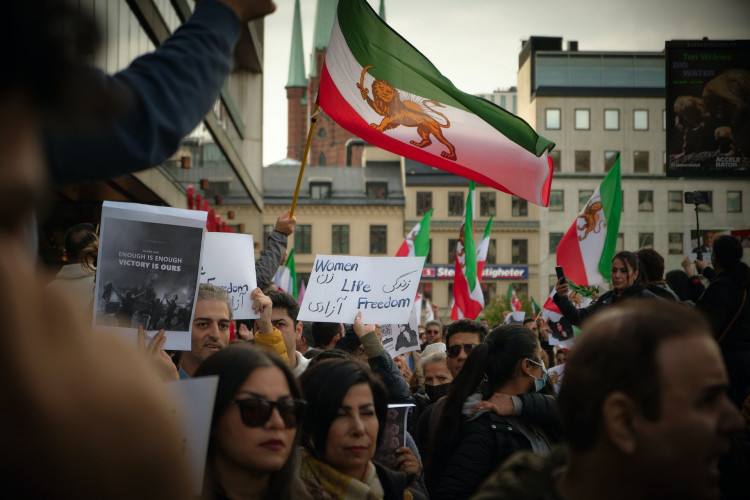Iranian President Ebrahim Raisi warned that Israel would pay a "heavy price" for an airstrike in Damascus, which Iran has accused Israel of carrying out, during a conversation with Iraqi Prime Minister Mohammed Shia al-Sudani on Wednesday evening. The discussion focused on the "martyrdom" of Maj. Gen. Mohammed Reza Zahedi, an Islamic Revolutionary Guard Corps (IRGC) leader killed in the attack.
The Iranian president's remarks come as U.S. troops serving in the Middle East brace for potential retaliation from Iran and its proxies following the strike on Iran's consulate in Syria. Lt. Gen. Alexus Grynkewich, a top commander with the U.S. Air Force, expressed concern that the attack, believed to be carried out by Israel, could be a catalyst for renewed assaults on U.S. bases in Iraq and Syria. "I am concerned because of the Iranian rhetoric talking about the U.S., that there could be a risk to our forces," Grynkewich said.
The U.S. has insisted to Iran that it had no involvement in Monday's strike, but Iranian officials maintain that the U.S. is just as responsible as Israel for the attack. Israel has not confirmed its role in the strike, although U.S. officials have indicated that evidence points to an Israeli operation.
Iran views Iraq as its "near abroad" and has been empowering militias in the country to threaten Israel, the U.S., and the region. According to Tasnim media, an Iranian news outlet, Iraqi-based militias have carried out a drone attack targeting Israel, one of several attacks claimed by these militias in the past week. The report stated, "Since the attack of the Israeli regime army on the Gaza Strip, the Islamic resistance of Iraq and Lebanon, in solidarity with the resistance and the Palestinian people in the Gaza Strip, have fired missiles, rockets, drones, and cannon balls towards the occupied lands. The war against Gaza has been going on for six months."
President Raisi also outlined his view on how the war in Gaza will reshape the region, claiming that the "Al-Aqsa Storm" attack by Hamas against Israel "was a turning point in the history of the Palestinian cause, adding the region and the world will not be the same after the October 7 military operation which resulted in the death of some 1,200 Israelis." This statement underscores the depth of Iranian support for Hamas and how the country is exploiting the war for its own interests.
Iran is also using Quds Day, a day devoted to backing Palestinians, to inflame tensions in the region. According to Fars News, a pro-government Iranian media outlet, a message from Iran has been communicated to Tehran, Damascus, Sana'a, Beirut, and Baghdad. "Thanks to the valor, faith, and courage of the Palestinians in Al-Aqsa Storm, it has become clear to everyone today that the Zionist regime's abode is more fragile than a spider web, and the world is witnessing the fulfillment of this divine promise," Raisi said.
Yigal Carmon, a former adviser to two Israeli prime ministers on countering terrorism and founder and president of the Middle East Media Research Institute (MEMRI), told Fox News Digital that "[Iran's supreme leader's] policies over the years reflect cowardice. The Iranian pattern of reaction is such that he escalates when he feels that the other side is afraid of him, and backs down when the other side shows deterrence."
Carmon added, "In the attack on an official Iranian government target in Damascus, Israel escalated against Iran, telling Iran that Israel will not continue with the proxy game so commonly played by Iran. The Israeli escalation was to serve as a warning: we are ready for battle with you, Iran, directly, at this time, even though we are at war in both Gaza and Lebanon."
The Iranian statements and connection to Iraq illustrate its possible next moves, as it seeks to increase the role of Iraqi militias in attacks on Israel and considers whether to continue targeting U.S. forces using those militias. Raisi's remarks reflect Tehran's current thinking that the October 7 events have fundamentally transformed the region, and Iranian escalation following the Damascus airstrike remains a possibility. However, Iran's talks with Baghdad also suggest that it is working toward a full-court press in the region, aiming to use the end of Ramadan to its benefit and ensure all its pieces are in place before any escalation begins.




